Willie Falcon and Sal Magluta: Offshore Boating Stars and Miami’s Shadow Empire
How offshore boating stars Willie Falcon and Sal Magluta ran Miami’s shadow empire.
Willie Falcon and Sal Magluta, Cuban-American high school dropouts, rose from Miami’s streets to become offshore boating champions and architects of a massive illicit empire in the 1980s. Known as “Los Muchachos,” they blended high-speed racing with a covert operation that amassed over $2 billion in wealth.
From Miami’s Waterways to Racing Fame
Born in Cuba—Falcon on September 1, 1955, and Magluta on November 5, 1954—the duo moved to Miami as children. They grew up in the Cuban-American community, dropping out of Miami Senior High School. Their love for boats started young, racing small vessels in Miami’s waterways. By the late 1970s, they entered the high-stakes world of offshore powerboat racing, a sport known for its speed and danger.
Falcon and Magluta excelled. Falcon won the 1986 Offshore Challenge off the Florida Keys. Magluta secured three national championships and served on the American Power Boat Association’s commission. Their boats, often custom-built with deep-V hulls and powerful engines, hit speeds up to 125 miles per hour. These vessels, designed for racing, also served their side ventures, outrunning Coast Guard patrols with ease. Their races, broadcast on ESPN, made them local celebrities, drawing crowds to Miami’s shores.
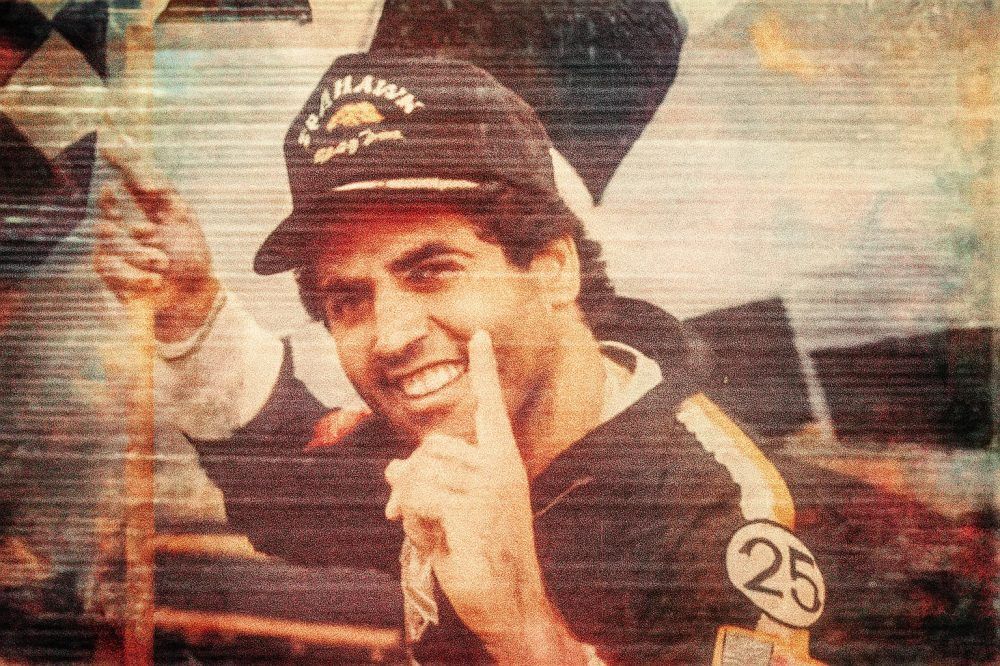
Their skill was undeniable. They navigated rough seas with precision, studying tides and winds to outmaneuver rivals. Their teamwork—Falcon’s calm strategy and Magluta’s bold execution—set them apart. They raced under team names like Seahawk and Cougar, piloting boats that became icons of the era’s offshore scene. Their success helped elevate Miami as a global hub for powerboat racing.
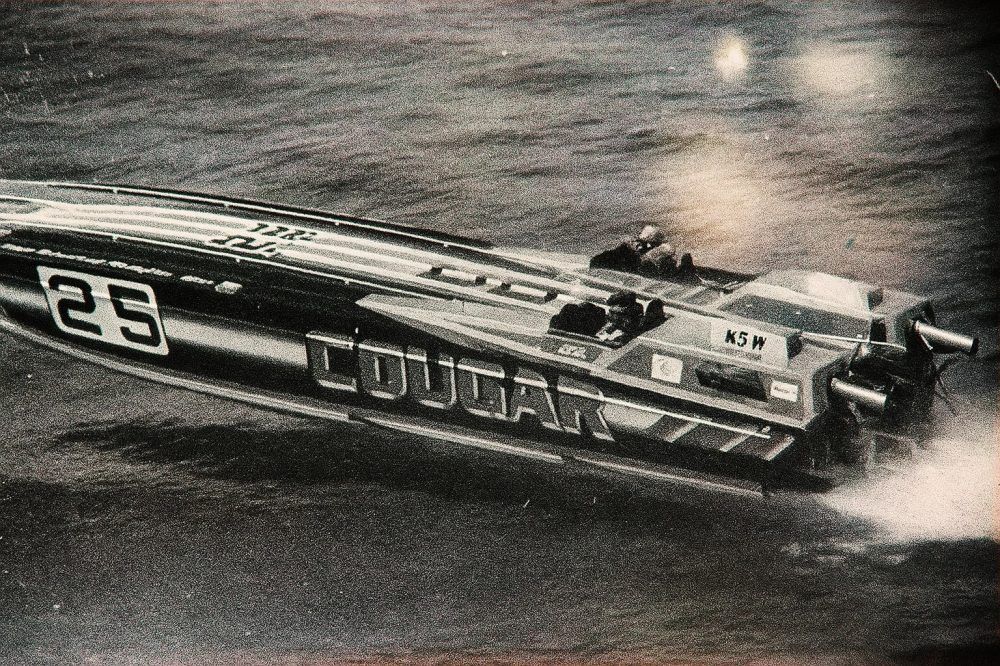
Building a Boating Empire
Beyond racing, Falcon and Magluta built a boating business. They invested in high-performance vessels, selling custom designs to wealthy clients. Their company, KS&W Offshore Engineering, was a legitimate front that capitalized on their racing fame. They also sponsored races, boosting their influence. Their boats, prized for speed and agility, were sought after by enthusiasts and collectors.
Their business wasn’t just about boats. They owned real estate, including a Vail condominium and a Miami ranch, which served as operational bases. These assets, worth millions, were part of a sprawling network of 163 domestic and offshore corporations in places like the Bahamas and Panama. This network supported their lavish lifestyle—mansions, sports cars, and yachts—while masking their true income sources.
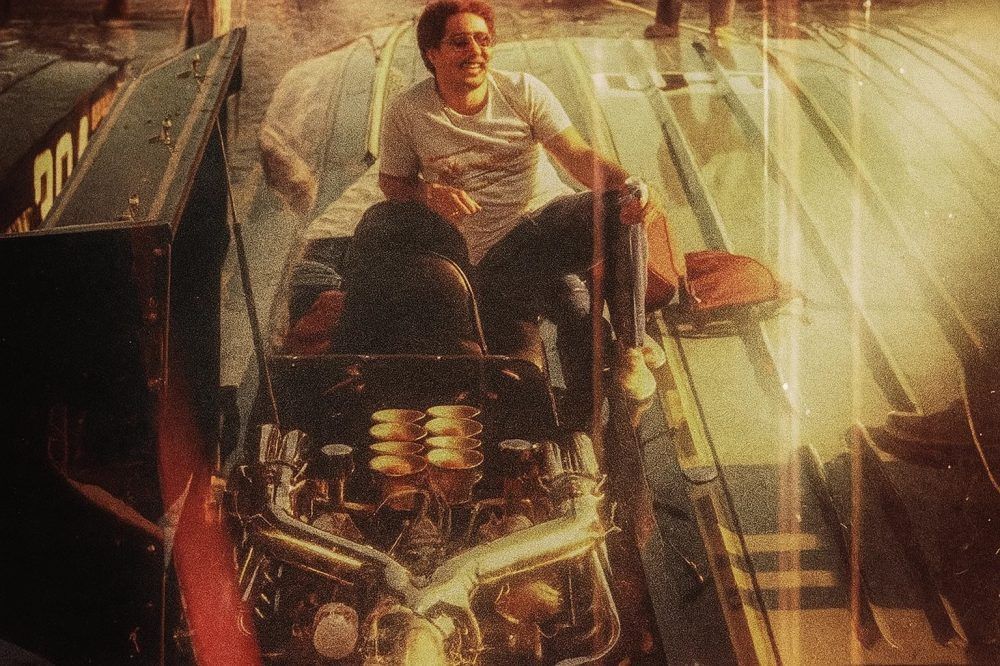
The Illicit Cash Flow
Falcon and Magluta’s wealth didn’t come from racing alone. Starting as small-time hustlers in the 1970s, they scaled up after their mentor, Jorge Valdes, was arrested in 1980. They took over his operations, managing a vast network of boats and planes that moved goods from Colombia to the U.S. East Coast. Federal prosecutors later estimated they handled 75 tons of product, generating $2.1 billion in cash and assets between 1978 and 1991.
They laundered their earnings through offshore accounts and dummy corporations in the Netherlands Antilles and British Virgin Islands. These setups hid their wealth from authorities. They also donated to local schools and charities, earning a “Robin Hood” reputation in Miami’s Cuban community. Their generosity, like funding college tuition for locals, bought loyalty and goodwill.
Their operation was sophisticated. They employed boat drivers, pilots, and bankers, and even had cops and private investigators on their payroll to screen new hires. This kept their network airtight, letting them operate openly for years. Their racing fame doubled as a cover, blending their legal and illegal worlds seamlessly.
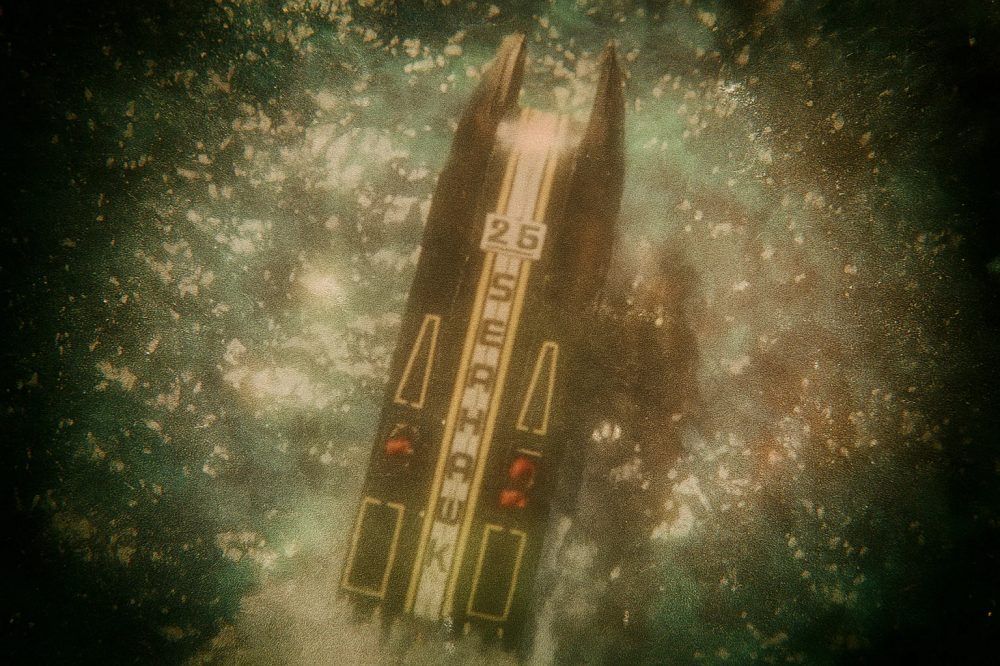
Legal Troubles and Downfall
The feds caught up in 1991. On October 14, a 24-count indictment charged Falcon, Magluta, and associates with running a criminal enterprise. Authorities seized $16 million in real estate, $1 million in cash and jewelry, and a kilo of gold during raids on their Miami and Fort Lauderdale mansions. The case seemed airtight, but their 1996 trial ended in a shocking acquittal. They had bribed jurors, paying out $24 million in legal fees and bribes, including $400,000 to the jury foreman.
The victory was short-lived. In 1999, prosecutors uncovered the bribery scheme. A new case charged them with money laundering, jury tampering, and ordering the murders of three witnesses between 1991 and 1996. Magluta briefly fled in 1997, using fake IDs, but was caught in Florida. In 2002, he was convicted of money laundering and bribery, receiving a 195-year sentence. He’s now at ADX Florence, a supermax prison in Colorado. Falcon took a plea deal in 2003 for money laundering, serving 14 years of a 20-year sentence. Released in 2017, he was deported to the Dominican Republic, as his lawyers argued Cuba was unsafe due to his donations to anti-Castro groups. His current whereabouts are unknown.
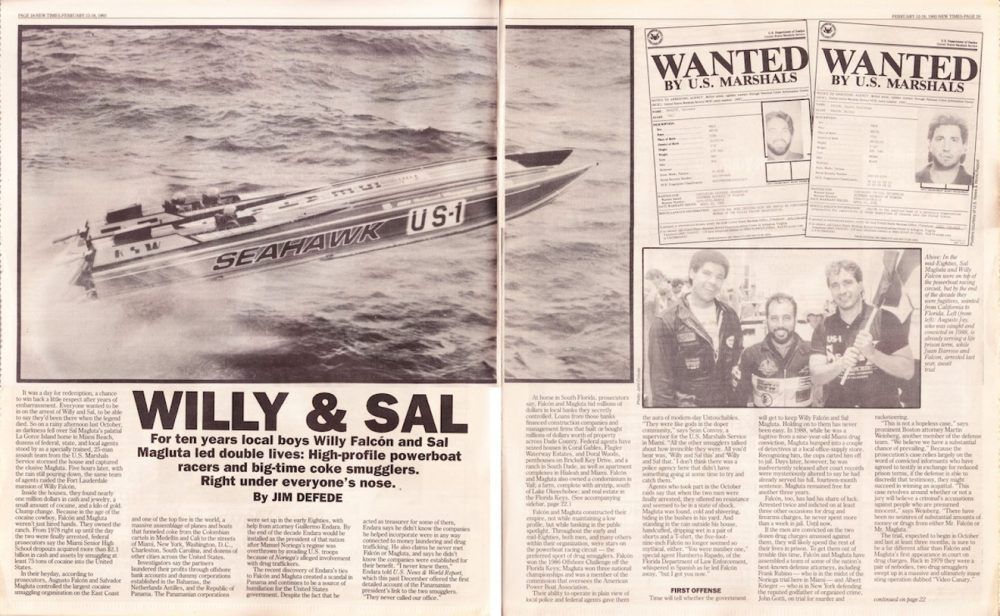
Impact on Boating and Miami
Falcon and Magluta shaped offshore racing. Their boats, built with cutting-edge tech, influenced modern designs. Miami’s racing scene thrived under their influence, drawing global attention. Yet, their illicit ventures tied powerboating to Miami’s underworld, a link that faded as enforcement tightened in the 1990s. Corporate sponsors like insurance firms replaced the shady cash that once fueled the sport.
Their story, detailed in Netflix’s Cocaine Cowboys: The Kings of Miami (2021), remains a cultural touchstone.












